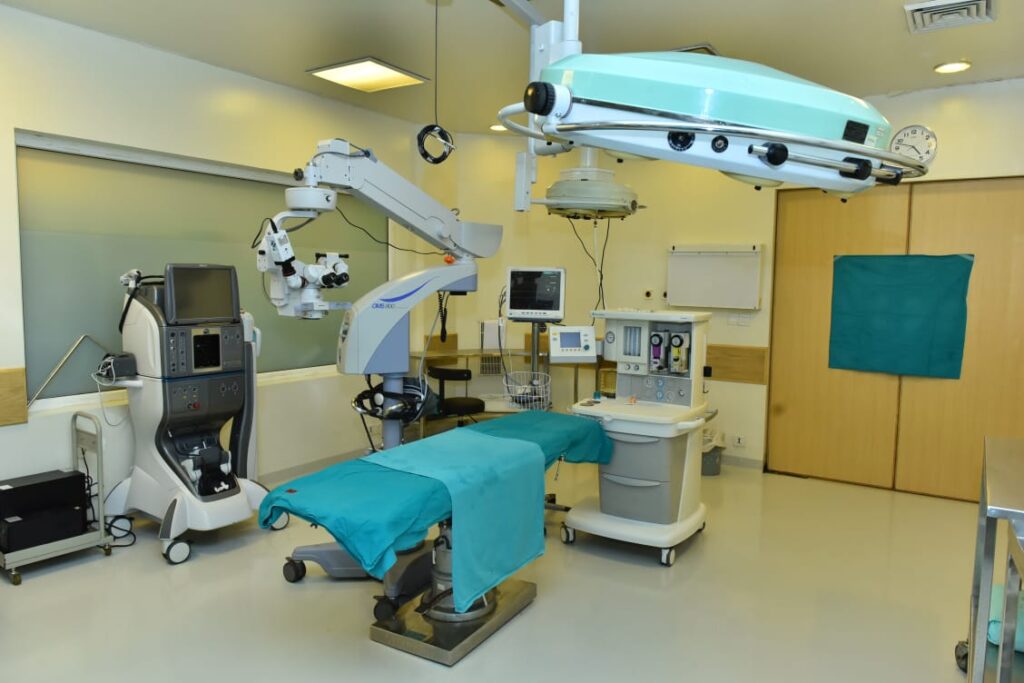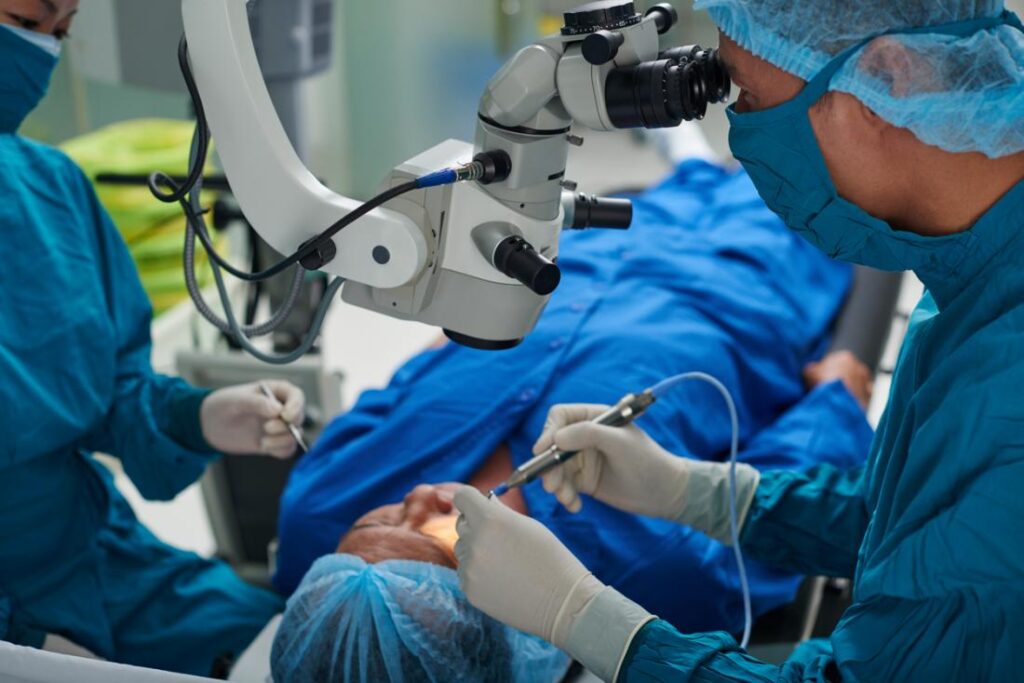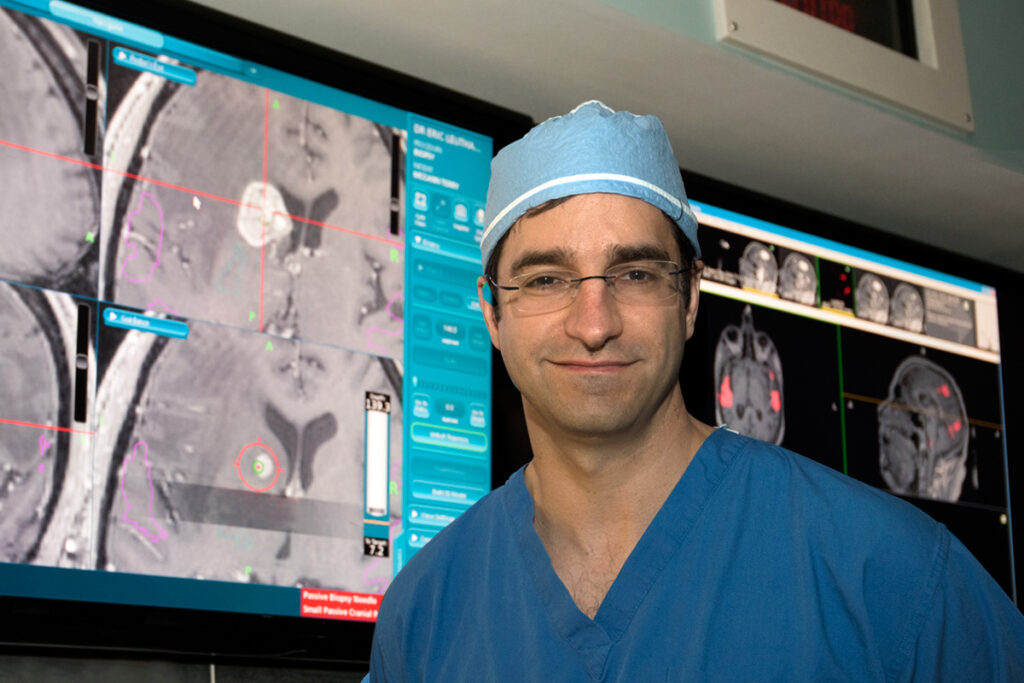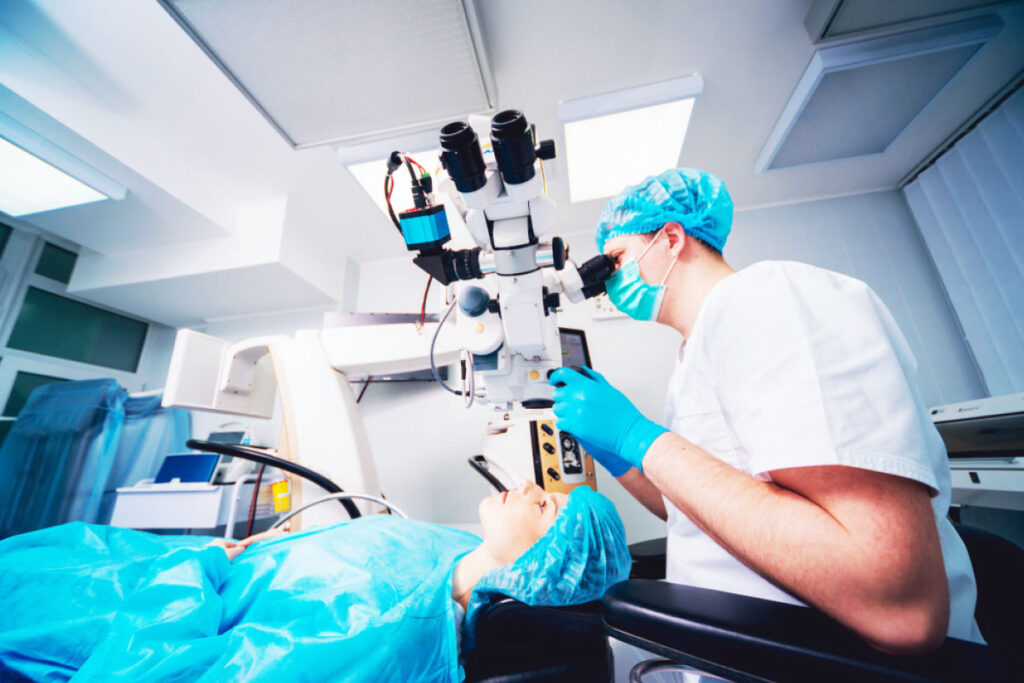Cataract surgery is a common procedure that can significantly improve vision for those suffering from cataracts. Understanding the causes, process, and benefits of this surgery can help individuals make informed decisions about their eye health.
In this article, we will explore cataracts, the surgery process, the benefits of the procedure, and address common concerns. Additionally, we will discuss what to expect post cataract eye surgery and how to maintain eye health for a brighter future.
Understanding Cataracts: An Overview
What are Cataracts?
Cataracts are a common age-related condition that affects the natural lens of the eye. The lens, which is normally clear, becomes cloudy over time, leading to blurred vision and other visual disturbances. Cataracts can develop slowly, gradually impacting daily activities such as driving, reading, and recognizing faces.
When cataracts form, they can cause the lens to lose its transparency, resulting in a gradual decline in vision quality. Initially, individuals may experience mild blurriness, but as the cataracts progress, the vision can become significantly impaired. Colors may appear faded, and glare from bright lights may become more pronounced. These visual changes can have a significant impact on a person’s quality of life, making it essential to seek timely treatment.
It is important to note that cataracts are not a disease that can spread from one eye to another. They typically develop independently in each eye, although the rate of progression may vary. While cataracts are most commonly associated with aging, they can also occur in younger individuals due to certain medical conditions or trauma to the eye.
See Also: The Transformative Journey of Cataract Surgery Explained

The Causes and Risk Factors of Cataracts
While aging is the primary cause of cataracts, other factors can contribute to their development. These include genetics, diabetes, smoking, prolonged sun exposure, and certain medications. It is essential to be aware of these risk factors and take preventive measures to slow down cataract formation.
Genetics play a role in determining an individual’s susceptibility to cataracts. If you have a family history of cataracts, you may be at a higher risk of developing them yourself. Additionally, certain medical conditions, such as diabetes, can increase the likelihood of cataract formation. High blood sugar levels can affect the lens’s clarity, leading to the development of cataracts at an earlier age.
Smoking has been linked to various eye problems, including cataracts. The chemicals present in tobacco smoke can cause oxidative stress in the lens, accelerating the formation of cataracts. Prolonged exposure to sunlight, particularly without proper eye protection, can also contribute to cataract development. The harmful ultraviolet (UV) radiation from the sun can damage the lens over time, leading to cloudiness.
Furthermore, certain medications, such as corticosteroids, can increase the risk of cataracts. These medications, when used long-term or in high doses, can cause changes in the lens’s structure and function, promoting cataract formation. It is important to discuss the potential side effects of any medications with your healthcare provider.
By understanding the causes and risk factors associated with cataracts, individuals can take proactive steps to minimize their impact. Regular eye examinations, maintaining a healthy lifestyle, wearing sunglasses with UV protection, and managing medical conditions effectively can all contribute to reducing the risk and slowing down the progression of cataracts.
The Process of Cataract Surgery
When it comes to cataract surgery, there are several important steps involved in the process. From preparing for the surgery to the actual procedure and post-surgery care, each stage plays a crucial role in ensuring successful outcomes and a smooth recovery.
Preparing for Cataract Surgery
Prior to cataract surgery, your eye doctor will conduct a thorough examination to assess your eye health and determine the best approach for your specific needs. This may include discussing your medical history, performing various tests, and measuring the shape and size of your eye.
During this pre-surgery phase, your doctor will also take the time to address any concerns or questions you may have. They will explain the procedure in detail, including the benefits, potential risks, and expected outcomes. This open and informative discussion is essential in ensuring that you have a clear understanding of what to expect.
Additionally, your doctor will provide instructions on how to prepare for the surgery. This may include discontinuing certain medications that could interfere with the procedure, fasting before the surgery to ensure an empty stomach, and arranging for transportation to and from the surgical facility.
The Procedure: What to Expect
Cataract surgery is typically an outpatient procedure performed under local anesthesia. This means that you will be awake during the surgery, but your eye will be numbed to minimize any discomfort.
Once you are in the operating room, the surgical team will ensure that you are comfortable and positioned correctly. They will then begin by sterilizing the area around your eye and placing a sterile drape over your face to maintain a sterile environment.
The surgeon will make a tiny incision in the eye, usually less than 3 millimeters in length. This small incision allows for the insertion of specialized surgical instruments. To access the cataract, the surgeon may use a technique called phacoemulsification, which involves using ultrasound energy to break up the cloudy lens into tiny fragments.
Once the cataract is fragmented, the surgeon will gently suction out the fragments, leaving behind the clear lens capsule. At this point, the artificial lens, known as an intraocular lens (IOL), will be inserted into the capsule. The IOL is designed to restore clear vision and compensate for the natural lens that was removed.
After the IOL is securely in place, the surgeon will ensure that the incision is properly sealed. In some cases, a self-sealing incision may not require stitches. However, if stitches are necessary, they are typically very small and self-dissolving, eliminating the need for their removal in the future.

Post-Surgery: Recovery and Healing
After cataract surgery, you will spend a short time in the recovery area, where your vital signs will be monitored. It is normal to experience mild discomfort, itching, or watering in the operated eye during the initial days. These symptoms are part of the healing process and should gradually improve over time.
Your doctor will provide detailed instructions on how to care for your eye post-surgery. This may include using prescribed eye drops to prevent infection and reduce inflammation, wearing an eye shield or protective glasses to shield your eye from accidental injury, and avoiding activities that could strain the eye, such as heavy lifting or rubbing the eye.
It is crucial to follow these instructions diligently to ensure proper healing and prevent complications. Your doctor will schedule follow-up appointments to monitor your progress and make any necessary adjustments to your post-surgery care plan.
Remember, cataract surgery is a highly successful procedure that has helped millions of people regain clear vision and improve their quality of life. By understanding the process and actively participating in your pre and post-surgery care, you can confidently embark on your journey towards better vision.
Unveiling the Benefits of Cataract Surgery
Cataract surgery is a remarkable procedure that offers a multitude of benefits to individuals suffering from cataracts. Not only does it improve vision quality, but it also enhances color perception and reduces dependence on glasses or contact lenses. Let’s delve deeper into these benefits to understand how cataract surgery can truly transform lives.
Improved Vision Quality
One of the most significant benefits of cataract surgery is the improvement in vision quality. Many individuals experience significantly clearer and sharper vision after the procedure, allowing them to engage in various activities without visual limitations. Colors appear more vibrant, and fine details become more distinct.
Imagine being able to see the world with renewed clarity, being able to read signs from a distance, or enjoying the intricate details of a painting. Cataract surgery can make all of this possible, restoring your vision to its former glory.

Enhanced Color Perception
Cataracts can cause a yellow or brown tint to the vision, making colors appear dull and less vibrant. By removing the cloudy lens and replacing it with an artificial one, cataract surgery can restore the natural color perception, allowing individuals to appreciate the world in its true brilliance.
Imagine being able to see the vibrant hues of a sunset, the rich colors of a blooming flower, or the vivid shades of a rainbow. Cataract surgery can bring back the joy of experiencing the world in all its colorful glory.
Reduction in Dependence on Glasses
For individuals who need glasses or contact lenses before cataract surgery, the procedure can result in reduced dependence on visual aids. With the right selection of Intraocular Lens (IOL), individuals may experience improved distance or near vision, minimizing the need for corrective lenses in certain situations.
Imagine being able to wake up in the morning and see the world clearly without reaching for your glasses. Imagine being able to engage in activities like swimming or playing sports without worrying about your glasses falling off or getting damaged. Cataract surgery can provide you with the freedom and convenience of a life with reduced dependence on visual aids.
As you can see, cataract surgery offers a wide range of benefits that go beyond just improving vision. It can truly transform the way you see and experience the world. If you are considering cataract surgery, consult with your ophthalmologist to learn more about the potential benefits and find out if you are a suitable candidate for the procedure.
Addressing Common Concerns About Cataract Surgery
Debunking Myths About Cataract Surgery
There are several misconceptions surrounding cataract surgery, such as it being a risky procedure or that it cannot be performed on individuals with other eye conditions. These myths can create unnecessary anxiety and prevent individuals from seeking the transformative benefits of cataract surgery. It is important to understand the truth behind these myths and consult with a trusted eye care professional for accurate information.
Safety and Success Rate of the Procedure
Cataract surgery is considered a safe and highly successful procedure. With advancements in surgical techniques and technology, the risk of complications is minimal. The overwhelming majority of patients experience improved vision and satisfaction following cataract surgery.
Life After Cataract Surgery
Adjusting to Improved Vision
After cataract surgery, it may take some time for your eyes to adjust to the improved vision. You may initially notice differences in depth perception and brightness. It is important to be patient during this adjustment period and follow up with your eye doctor for any concerns or questions you may have.
Maintaining Eye Health Post-Surgery
While cataract surgery improves vision, it does not prevent other eye conditions from developing. It is crucial to maintain regular eye exams, protect your eyes from harmful UV rays, and follow proper eye care practices to ensure long-term eye health. Your eye care professional will guide you on the necessary steps to protect your vision and maintain the benefits of cataract surgery.
In conclusion, cataract surgery offers a clear path to better vision and an improved quality of life. Understanding the causes, benefits, and process of cataract surgery can help individuals make informed decisions about their eye health. By addressing common concerns and knowing what to expect post-surgery, individuals can navigate the benefits of cataract surgery with confidence, enjoying crystal clear vision for years to come.

